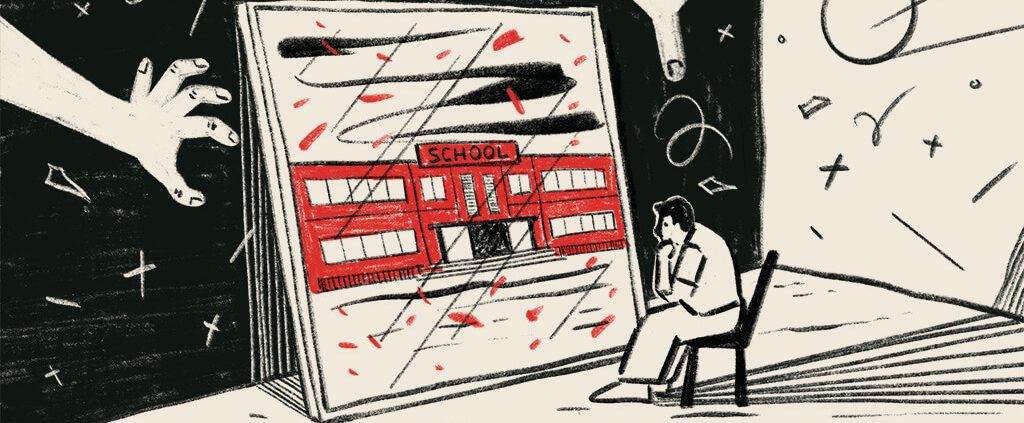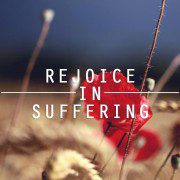A Father Reflects on a School Tragedy
Editor’s Note: Singapore has been reeling in the wake of news reports on 19 July that a 16-year-old schoolboy had murdered a fellow student, a 13-year-old in a bathroom at River Valley High School–a prominent secondary school in Singapore. Later reports revealed that the suspect suffered from mental health struggles and has since been remanded for psychiatric assessment.
Written by Jacob Ng, Singapore
Jacob is husband to Yvonne, dad (and playmate) to Jed and Justus, and a pastor of Redemption Hill Church, Singapore. He still wakes up amazed and grateful that God would consider him worthy of all these roles. He strives to make much of God by enjoying and giving thanks for the daily grace of life in the mundane and ordinary.
I do my best to hug, kiss, and remind my kids that I love them every day. Eventually, there will come a day when it will be the last time that I get to do so. None of us will know when that day finally comes, and I get emotional just thinking about it.
The tragic event at River Valley High School hit hard in so many ways. Deaths always feel shocking and unnatural. When it happens to young children, in a place where they are supposed to feel safe, it feels even more confounding and heartbreaking. The grief and trauma for those who are directly impacted may not be fully obvious now, but the effects will linger on and come out in many different ways for a long while. Healing will be a long painful process ahead. My heart goes out to the families and individuals who are going through unspeakable pain right now, and I grieve with them.
We are all meaning-makers on things we go through in life, especially when it comes to things that hurt the most. Eventually every sufferer will attempt to interpret pain by asking the question, “Why?” I wish there were simpler answers.
What happened at River Valley High School has no simple answers, and really could happen to any of our children. Even with our best efforts, we simply do not have full control over the things and people we love the most. Simplified answers to the complex afflictions in life not only fail to satisfy, but they may do more harm instead. As a dad, I really do want my kids to interpret sufferings and tragedies well, starting at a young age.
We are familiar with many children’s stories that depict heroes and villains in an absolute way. I told my kids that while the concept of absolute “good and evil” is true and biblical, it cannot be easily applied to the many situations and people in this fallen, broken world that we live in. Our emotional response to suffering often is to seek something or someone to blame because it provides a focal point to direct our pain. However, the situation is often much more complicated.
In this case, a boy had suffered a horrifying attack and lost his life. Another boy had likely suffered in other ways, and will face the consequences of his horrifying deed. Two families are in different kinds of pain right now—both in ways that words cannot fully express.
I am not suggesting that we can absolve human responsibility or relativise “good and evil.” I am just saying that many situations and people are often way more complex than we assume. We really cannot see the full picture to get complete understanding. Hence, compassion, wisdom, patience, and empathy will go a longer way than quick judgement.
So how should we attempt to make sense of suffering and pain that seem senseless? By lifting our eyes to God, holding fast to God’s love, and developing a biblical worldview that is informed by God’s Word. In light of life’s brokenness and afflictions, the real spiritual battle is how we view God and whether we trust in His goodness. The Bible tells us He does not delight in our brokenness, but “the LORD is near to the brokenhearted and saves the crushed in spirit.” (Psalm 34:18)
To those who are afflicted with grief and trauma in this time, know that the Christian faith is birthed out of the most grievous trauma that God took upon himself on the Cross. Jesus, who knew no sin and is the purest definition of “good”, suffered and was broken for all sinners and sufferers. In His death and resurrection, He overcame sin and death for us. Through Him, we have redemption, true hope, new life, and restoration. There may be some griefs that will never fully go away on this side of eternity, but we have a Wounded Healer who is near. One day, “he will wipe away every tear” (Revelation 21:4). On that day, everything sad will come untrue.











This tragic event serves as a poignant reminder that mental health should be prioritized not only in reactive responses but also through proactive measures such as mental health education, support systems, and accessible resources within schools.